ERF 27th Annual Conference: SDGs and External Shocks in the MENA Region: From Resilience to Change in the Wake of COVID-19
FromMay 17, 2021 To Jun 28, 2021
Online Webinars
 ERF annually holds a highly visible conference that concentrates on issues relevant to economic policy in the region. This flagship event draws on the contributions of senior policy makers, high profile academic researchers as well as referred open call papers to promote region-wide and international knowledge and evidence-based development and public policy debates and mentorship of promising researchers.
ERF annually holds a highly visible conference that concentrates on issues relevant to economic policy in the region. This flagship event draws on the contributions of senior policy makers, high profile academic researchers as well as referred open call papers to promote region-wide and international knowledge and evidence-based development and public policy debates and mentorship of promising researchers.
The ERF Annual Conference, a tradition maintained since 1995, has become the premiere regional event for economists of the Middle East, where new ideas are created and disseminated; where the community of researchers meet and where excellence is celebrated. Established in 1993, ERF was created to build strong research capacity in the region. It was one of the first, if not the only, institutions to connect economic researchers from across the region.
The Arab Fund has been gratefully generously sponsoring the ERF Conference for some 18 years. Thanks to this un-wavered commitment, ERF has been able to successfully deliver against its core mission and continue to convene this flagship event.
This year the conference is held under the theme of “Sustainable Development Goals and External Shocks in the MENA region: From Resilience to Change in the Wake of COVID-19”. This is a timely topic in the light of the significant political, social and economic transformation in the region.
There will be three main plenary sessions and three special panels, which will feature world-renowned economists, social scientists and policymakers and the results of three major projects recently completed. The conference sessions will feature a larger number of diverse papers across cross-cutting themes selected on the basis of rigorous refereeing process in response to an open call for papers. Following the last special panel, a closing plenary session will celebrate winners of what has become a regional certificate of excellence: The Best Paper Award.
Conference Theme
The outbreak of the COVID-19 pandemic represents an unprecedented shock for the world economy. The International Monetary Fund (IMF) described this shock as the “Great Lockdown” that will reduce global GDP by 3% in 2020. In addition to this, oil prices have reached the lowest record in modern history. With the pandemic sweeping across the oil-rich Middle East and North Africa (MENA) region, the latter has to face two concomitant shocks. Obviously, the response to these two external shocks cannot be dissociated from the Sustainable Development Goals (SDGs). While several MENA countries were making a relatively good progress in these goals, they will have now to re-organize their priorities and adopt active economic and social policies at both the short and the long-term horizons.
Indeed, given the transformational nature of the current period, the future will chiefly depend on how countries of the region will adjust their policies and strategies, and on how they respond under their respective constraints. Both active stabilization policies (targeting the short term) and structural ones (aiming at changing the structure of economies in the long run) will have to be adopted. Such policies, and consequently research priorities will differ depending on the country characteristics in the MENA region. The latter can be divided into groups of countries with relatively close features: the Gulf Cooperation Council countries, countries with political unrests, countries with internal or external conflicts, and the other middle-income countries. Despite the significant interdependences between their economies, these groups have become more distinct than in the past, and the impact of the shocks is likely to make them diverge even more which requires different policy responses when it comes to SDGs.
More specifically, with the pandemic and lower oil prices, economic growth will be negatively affected, hence poverty rates (SDG1), social protection and inequalities (SDG10), even hunger (SDG2), are likely to increase. This slowdown will also exert a negative impact on demand, production and thus job creation (SDG8 and SDG9). Moreover, with various countries in some kind of lockdown, while many scholars assume that this will be beneficial for the environment at least in the short term (SDG7, SDG13 and SDG14), carbon dioxide levels in the atmosphere are still at high levels.
At the human capital level, the COVID-19 raised also several questions in terms of education and health. First, at the education one, schools, public and private universities moved to e-learning. It is important to analyze to what extent the long-distance learning is efficient (SDG4) and feasible with limited technological infrastructure in MENA countries. Second, the pandemic has made clear many of the problems facing the countries health care system in particular equipment, trained staff and infrastructure (SDG3).
Therefore, regional and multilateral collaboration (SDG17) is clearly required to curb the negative effects of these shocks. This can be justified by the need to accelerate the development to new COVID-19 diagnostics and vaccines and to help countries overcome its negative effects (such as the rapid financing instrument provided by the IMF).
Main Questions:
Against this background, and since every crisis brings opportunities, the conference, through plenary sessions and panels, will feature world-renowned economists, social scientists and policymakers in order to discuss the following questions:
1) For how long and how deep the impact of these unprecedented shocks is going to be? What will be the medium and long run effect, especially with regards to SDGs?
2) For the post-COVID19 period, how national policies have to be adjusted in order to re-prioritize development goals and make the economies more resilient in the short term and more developed in the long term? How to manage the tradeoff between deeper stabilization as a short-term requirement with optimum resource allocation as a long-term goal?
3) At the social level, how will the MENA region combine finance stabilization programs that are often accompanied by targeted short-term relief for a few of the vulnerable people with more systemic long-term solutions?, and, in view of the shrinking fiscal space and looming debt burden, how much support could be expected from the regional and international development communities for MENA and other developing regions?
4) The underlying issue to all of the above is what will be the emerging role of the state in response to the changing technological and regulatory capacities that are likely to shape the economic policy making in the aftermath of Covid-19?
Agenda
Plenary 1: A Global Economic System in Turmoil: What is at Stake for the MENA region?
Date
17/05/2021
Location
Online Webinar
Time
From 4:00 pm To 6:00 pm
Register here
While the outbreak of the COVID-19 pandemic has led to a severe economic crisis and recession at the world level, there is a higher-than-usual degree of uncertainty related to recovery. This is particularly more pronounced for the Middle-East and North Africa (MENA) economies that are more dependent on oil exports and have a lower fiscal space. Thus, with decreasing oil prices, these two external shocks are likely to have a deep and long-lasting effect on the MENA countries and will put a halt on their progress in the Sustainable Development Goals (SDGs).
Therefore, this first plenary session will discuss several questions related to these shocks:
1) First, for how long and how deep the impact of these unprecedented shocks is going to be? What will be the medium and long run effect, especially with regards to SDGs?
2) What are the main challenges faced by the MENA region to move forward despite this uncertainty?
3) How the world will look like in the post-COVID-19 era? What will be the role of MENA region?
Speakers

Senior Associates
Samir Makdisi
Professor Emeritus of Economics, American University of...
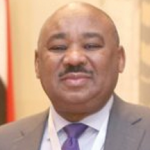
Research Fellows
Ibrahim Elbadawi
Development Studies & Research Forum, Dubai

Senior Associates
Mahmoud Mohieldin
Professor, Department of Economics - Cairo University,...
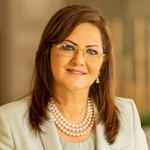
Senior Associates
H.E. Hala Elsaid
Economic Advisor to H.E. President of Egypt...

Speakers
Mounir Tabet
Deputy Executive Secretary - Programme, ESCWA

Research Fellows
Kamiar Mohaddes
Macroeconomist, Judge Business School, University of Cambridge
Videos
Agenda
Plenary 2: Social Protection, Inclusion and Inequality: A Pipeline of Policies
Date
24/05/2021
Location
Online Webinar
Time
From 4:00 pm To 6:00 pm
Register here
The adverse impact of the current economic shocks on vulnerable categories is particularly acute. These categories include, but not limited to, poor, women, youth, low-paid jobs, informal and irregular workers and working poor. Thus, both the pandemic and oil prices will not only imperil the significant progress made in reducing extreme poverty and achieving SDGs, but will increase inequality levels that are already surpassing Latin America and other regions in the Global South. Moreover, it is worthy to note that the current economic model adopted by MENA countries is characterized by two main features that amplify their weakness. First, they chiefly rely on services, construction and oil, that have a limited value-added and low potential for job creation. Second, with regard to vulnerable people, stabilization programs are often accompanied by targeted short-term safety nets. As a consequence, this economic model failed: on the one hand to generate sufficient and decent jobs and on the other to have a pipeline of social policies with more comprehensive long-term solutions.
Hence, this third plenary session will address the following questions.
1) How Arab governments can change their sectoral specialization to create more decent and less precarious jobs?
2) At the social level, how will the MENA region combine finance stabilization programs that are often accompanied by targeted short-term relief for a few of the vulnerable people with more systemic long-term policies?
3) To what extent universal social protection is feasible in the Arab world? How to sustainably finance this universal social protection while most of these economies register high levels of informality?
Speakers
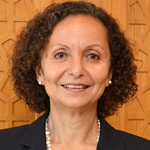
Research Fellows
Noha El-Mikawy
Dean, School of Global Affairs and Public...

Speakers
Martha Chen
Lecturer in Public Policy, Harvard Kennedy School
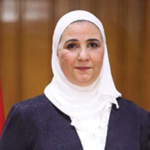
Speakers
H.E. Nivine El Kabbag
Minister of Social Solidarity, Egypt

Policy Affiliates
Mary Kawar
Director, Regional Hub of the Regional Bureau...

Authors
Sami Atallah
Director, The Policy Initiative

Research Fellows
Touhami Abdelkhalek
Full Professor, Africa Institute for Research in...
Presentations
Videos
Agenda
Special Panel 1 – The Impact of COVID-19 on Middle Eastern and North African Labor Markets
Date
27/05/2021
Location
Online Webinar
Time
From 4:00 pm To 6:00 pm
The COVID-19 pandemic continues to exact a devastating toll on lives, economies, and labor markets in the MENA region. This panel will discuss the results to date of the ERF COVID-19 MENA Monitor Panel Surveys, focusing on how the labor markets of Egypt, Jordan, Morocco, Sudan, and Tunisia have evolved from just prior to the pandemic (in February of 2020) through spring of 2021. Topics will include labor force participation, employment and unemployment, layoffs and loss of wages among wage workers, and the impact on farmers, employers, and the self-employed. Analyses will examine the impact on household welfare and income, as well as the reach and targeting of social protection. The panel will discuss implications and recommendations for supporting economic and labor market resilience and eventual recovery.
Speakers
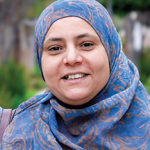
Research Fellows
May Gadallah
Associate Professor, Departments of Statistics, Cairo University
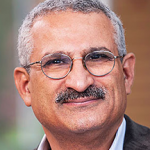
Research Fellows
Ragui Assaad
Professor and Freeman Chair for International Economic...

Research Fellows
Mohamed Ali Marouani
Associate Professor of Economics, Sorbonne University

Authors
Caroline Krafft
Associate Professor, Humphrey School of Public Affairs,...
Videos
Agenda
Plenary 3: Political Economy Challenges to Diversification Strategies
Date
31/05/2021
Location
Online Webinar
Time
From 4:00 pm To 6:00 pm
Register here
Panelists will interrogate the possibilities of reforms that increase productivity, create jobs, and allow for a progressive diversification of the economy, in an environment characterized by fiscal tightness and popular unrest. What is the 2020s version of reforms with a human face for the various parts of the MENA region? Can markets but not the polity be liberalized, as in the 1990s? What formulae can be considered in the various political environments, and should they be of the big bang of gradual type?
Speakers

Speakers
Masood Ahmed
President, Center for Global Development

Research Fellows
Ishac Diwan
Director of Research, Finance for Development Lab,...

Senior Associates
Mustapha Nabli
North Africa Bureau of Economic Studies (NABES)
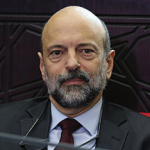
Speakers
Omar Razzaz
Former Prime Minister, Jordan

Research Fellows
Nader Kabbani
Senior Fellow and Director of Research, Middle...
Videos
Agenda
Special Panel 2 – Conflict and Post Conflict Economic Reconstruction Agenda
Date
10/06/2021
Location
Online Webinar
Time
From 4:00 pm To 6:00 pm
The future course of the Arab countries in civil conflicts will be defined by the nature of the settlements of their respective conflicts and the conditions thereof. Whatever form these settlements take a major premise of this project is that in today’s world any transformation leading to lasting national peace in Arab countries would be conditional on laying the foundations for inclusive socio-economic development in the context of a genuinely democratic environment. A second premise is that, whatever form the new social contract takes in each Arab country, it would require a massive transformation of the institutional fabric of society –that is, the set of key institutions—that helped create the conditions for an inevitable conflict. Experience has shown that, parliamentary elections, even if free, are not necessarily sufficient to ensure the needed accountability in governance. Institutional reforms should allow for its regular implementation.
Accordingly, the project adopts a two-tier approach whereby it is divided into two parts. Part I presents a general framework that describes the overall socio-economic agenda for the Arab countries recovering from civil conflicts and domestic violence, complemented by two specific dimensions of the conflict question relevant to the Arab region: (1) the effects of horizontal inequality (associated with the grievances-based approach) and its conditionality on oil resources and government spending (associated with the greed-based approach); and (2) the relationship between power‐sharing institutions and post‐conflict trajectories in countries that have experienced civil war and their quest to achieve a new, more stable social contract. Part II is devoted to case studies of four countries in conflict (Syria, Iraq, Libya, and Yemen). Accounting for the analyses of Part I, the case studies explore the causes of the respective conflicts, trace subsequent politico-economic developments, identify major questions and issues faced in the post-conflict phase and identify the major areas of reform that need to be implemented to achieve the objectives of economic reconstruction and national peace.
Speakers

Senior Associates
Samir Makdisi
Professor Emeritus of Economics, American University of...

Senior Associates
Raimundo Soto
Associate Professor of Economics, Pontificia Universidad Católica...

Research Fellows
Ibrahim Elbadawi
Development Studies & Research Forum, Dubai

Speakers
Nils-Christian Bormann
Professor of International Political Studies, Witten/Herdecke University

Research Fellows
Semih Tumen
Professor of Economics, TED University, Turkey

Policy Affiliates
Khalid Abu-Ismail
Senior Economist, United Nations Economic and Social...

Authors
Tilman Brück
Founder and Director of ISDC - International...
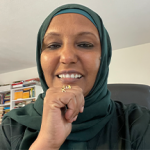
Speakers
Nada Mustafa Ali
Assistant Professor, School for Global Inclusion and...
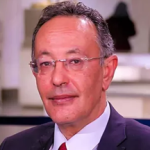
Research Fellows
Ahmed Ghoneim
Professor, Faculty of Economics and Political Sciences,...
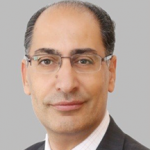
Policy Affiliates
Ibrahim Saif
CEO, Jordan Strategy Forum
Videos
Agenda
Special Panel 3 – Digital Transformation and Implications for Growth, Employment, Poverty and Inequality in the Arab Region
Date
24/06/2021
Location
Online Webinar
Time
From 4:00 pm To 6:00 pm
This session will present and discuss the findings of a new research project undertaken by The Arab Development Portal at the UNDP Regional Bureau for Arab States and the Economic Research Forum (ERF) entitled “Digitalization Transformation and Implications for Growth, Employment, Poverty and Inequality in the Arab Region.” The study examines issues through two complementary lenses. First, it explores how digital transformation affects economic growth and structural transformation through its impact on key sectors of the economy, and what are the opportunities and risks that digital transformation can create for supporting inclusive and sustainable growth, employment generation and poverty reduction? Second, it looks at the impact of digital transformation on human development and human capital accumulation, and what is its potential impact on inequality and poverty? These research questions are assessed by a set of thematic papers and 8 country specific policy briefs, which form the basis of the study. There is also an assessment of the potential effects of the COVID-19 pandemic for accelerating digitalization and the opportunities for growth and employment as well as any vulnerabilities (including vulnerabilities in the gig economy) that can exacerbate inequalities, and discuss policy options for addressing the potential challenges.
Speakers

Research Fellows
Ishac Diwan
Director of Research, Finance for Development Lab,...

Senior Associates
Mustapha Nabli
North Africa Bureau of Economic Studies (NABES)

Senior Associates
Shahrokh Fardoust
Research Professor, Global Research Institute, College of...
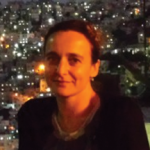
Speakers
Paola Pagliani
Regional Programme Coordinator, UNDP
Videos
Agenda
The Future of ODA – Challenges and Opportunities
Date
28/06/2021
Location
Online Webinar
Time
From 4:00 pm To 6:00 pm
ODA has become strained given the onset of the Covid-19 pandemic and its aftermath resulting in fiscal retrenchment in many developed countries instilling uncertainties regarding future flows. According to the OECD, the Sustainable Development Goal (SDG) financing gap is widening, currently estimated at US$ 2.5 trillion, which reinforces the case to align more global finance in support of the 2030 Agenda. It is hence pivotal to assess the changes in the strategic direction of development cooperation and explore the prospects and challenges of the role and use of ODA financing on the international level. ODA stands out from the other sources of finance in that its direct objective is to support economic, social and environmental development, thus directly linking to the SDGs.
While the COVID-19 pandemic posed serious challenges towards achieving the sustainable Development Goals (SDGs), Egypt was not derailed. In 2020, the Ministry of International Cooperation secured $9.8 billion in development financing to meet targets by 2030, with $3.1 billion mobilized to support the private sector.
Speakers

Research Fellows
Rania Al-Mashat
Minister of Planning, Economic Development and International...

Speakers
Erik Berglof
Chief Economist of the Asian Infrastructure Investment...
Videos
Agenda
Best Paper Award
Date
30/06/2021
Location
Online Webinar
Time
From 4:00 pm To 6:00 pm
A long-standing tradition, ERF has been keen to celebrate success and outstanding performance. Every year, referees select outstanding papers to recognize in the final conference session. The 27th Annual Conference attracted more than 150 submissions, of which about one third were finally selected for presentation at the ERF conference as featured in 21 webinars held in May – June 2021 across some 10 thematic tracks. These papers were subject to a two staged rigorous refereeing process. This year five papers were selected and will be recognized ‘live’ on Wednesday 30 June to mark the end of the ERF 27th Annual Conference Webinar Series.
Videos
Agenda
Parallel Session on: Economic Growth
Date
18/05/2021
Location
Online Webinar
Time
From 4:00 pm To 5:30 pm
Speakers

Senior Associates
Adeel Malik
Globe Fellow in the Economies of Muslim...

Research Fellows
Ayse Yasemin Yalta
Professor, Department of Economics, Hacettepe University, Turkey

Research Fellows
Adel Bino
Vice-chairman, Jordan Securities Commission

Authors
Saeed Tajrishy
PhD Candidate, Sharif University
Papers
Capital Flight and the Real Exchange Rate in Resource Scarce MENA Countries
We analyze the determinants of capital flight in three resource scarce MENA countries namely Egypt,... Read More
Economic Entrenchment and Growth Impediments in Jordan
The purpose of this paper is to understand the impediments of corporate growth in Jordan... Read More
The Externality of Public Housing Projects: The Case of Mehr Housing Project in Iran
Public housing projects are hotly debated especially for their impact on neighboring properties. On the... Read More
Videos
Parallel Session on: External Shocks and Macroeconomic Performance
Date
19/05/2021
Location
Online Webinar
Time
From 4:00 pm To 5:30 pm
Speakers
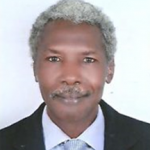
Authors
Kabbashi Suliman
University of Khartoum
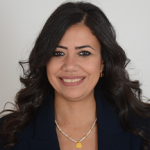
Research Associates
Jala Youssef
Economist-ET Consultant, Economic Policy (EP) Global Department...

Senior Associates
Dorothee Boccanfuso
Full Professor, Africa Institute for Research in...

Authors
Assil El Mahmah
Economic Advisor, Ministry of Economy and Planning...
Papers
On the Determinants and Outcomes of IMF Loans: A Political Economy Approach
The main objective in this paper is to empirically analyze the economic and political determinants... Read More
Impact of Tax Reforms in Applied Models: Which Functional Forms Should Be Chosen for the Demand System ? Theory and Application for Morocco
When researchers and policymakers conduct impact analyses of economic reforms, especially fiscal reforms, the specification... Read More
Banks’ Performance Amid Oil Price Shocks: Empirical Evidence from GCC Countries, 2002-2017
The paper explores empirically the factors influencing banks’ performances amid oil price fluctuations, using the... Read More
Videos
Parallel Session on: Work Opportunities-Home and Away
Date
25/05/2021
Location
Online Webinar
Time
From 4:00 pm To 5:00 pm
Speakers

Research Fellows
Meltem Dayioglu Tayfur
Professor, Department of Economics, Middle East Technical...
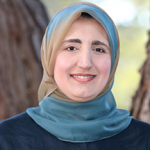
Research Fellows
Shireen AlAzzawi
Teaching Professor, Economics Department, Leavey School of...

Authors
Reem Hassan
Data Consultant, Pandata in Berlin
Papers
Lives Versus Livelihoods: Who Can Work from Home in MENA?
Since it began in March 2020, the COVID-19 pandemic has devastated the world economy. The... Read More
Between Hope and Despair: Egypt’s Revolution and Migration Intentions
We study the effect of the 2011 Egyptian revolution and its aftermath on migration intentions... Read More
Videos
Parallel Session on: Health Sectors in Wider Socio-Economic Context in the MENA Region
Date
26/05/2021
Location
Online Webinar
Time
From 4:00 pm To 6:00 pm
Speakers

Research Fellows
Belgi Turan
Associate Professor and Deputy Chair of the...
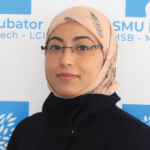
Authors
Houda Boubaker
Assistant Professor, Mediterranean School of Business, South...
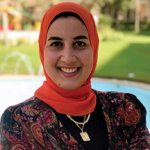
Research Associates
Amira El-Shal
Acting Associate Director of Research, J-PAL MENA

Authors
Marwan Khawaja
Chief of the Demographic and Social Statistics...

Authors
Hanifa Pilvar
PhD student, School of Economics and Finance,...

Research Fellows
Mesbah Sharaf
Full Professor, Department of Economics, University of...
Papers
Dynamic Governance of the First Wave of Covid-19 in Tunisia: An Interoperability Analysis
This paper aims to propose an interoperability index of the measures taken and adjusted by... Read More
Policy Responses, Social Norms, and Behavior Change in the Time of COVID-19
Inducing behavior change is a missing factor in the face of emerging viral threats. Beyond... Read More
High Rate of C-section and Its Consequences for the Timing of Birth
In 2013 in Iran, almost half of all infants were born by caesarian section (c-section)... Read More
Does Maternal Education Curb Female Genital Mutilation? Evidence from a Natural Experiment in Egypt
In this study, we exploit a natural experiment, an education policy change reducing compulsory schooling... Read More
Videos
Parallel Session on: Conflict and the Macroeconomy
Date
01/06/2021
Location
Online Webinar
Time
From 4:00 pm To 5:30 pm
Speakers

Research Fellows
Mouyad Alsamara
Associate Professor of Economics, College of Business...

Authors
Thibault Lemaire
PhD Candidate in Economics, Université Paris 1...
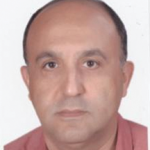
Authors
Mohamed Ali Trabelsi
Professor in Quantitative Methods, University of Tunis...
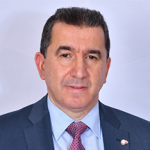
Research Fellows
Riadh Ben Jelili
Associate Professor, Department of Economics, University of...
Papers
Civil Conflicts and Exchange Rate Misalignment: Evidence from MENA and Arab League Members
For more than a decade, civil conflicts intensity has been high in the Middle East... Read More
Economic Resilience in Developing Countries: The Role of Democracy in the Face of External Shocks
This paper examines the role of democracy in strengthening the resilience of developing economies in... Read More
How Does Political Risk Matter for Foreign Direct Investment into Arab Economies?
The present paper extends previous work by Burger et al. (2016) that has attempted to... Read More
Videos
Parallel Session on: Conflict and Institutions
Date
02/06/2021
Location
Online Webinar
Time
From 4:00 pm To 5:30 pm
Speakers

Policy Affiliates
Khalid Abu-Ismail
Senior Economist, United Nations Economic and Social...

Authors
Vladimir Hlasny
Economic Affairs Officer, UN Economic and Social...

Research Fellows
Siham Matallah
Associate Professor, Department of Economics, University of...

Authors
Syed Muhammad All-e-Raza Rizvi
PhD student at Université Clermont Auvergne (UCA)
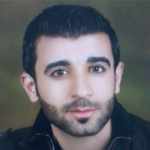
Authors
Ibrahim Alnafrah
Researcher and Lecturer, Faculty of Economics, Damascus...
Papers
Corruption: A Brutal Enemy of Economic Diversification in MENA Oil Exporters
This paper aims, on the one hand, to investigate the impact of corruption on economic... Read More
Economic, Social, and Institutional Determinants of Internal Conflict in Fragile States
In this article, we use Poisson fixed-effect regressions (FEPR) with robust standard errors and instrumental... Read More
Testing the External Shock Narrative of the Conflict on Transition Towards Knowledge Economy in Syria
In the existing literature, several narratives explain the failure of low-income countries in catching-up with... Read More
Videos
Parallel Session on: Political Economy and Conflict
Date
03/06/2021
Location
Online Webinar
Time
From 4:00 pm To 5:30 pm
Speakers

Authors
Belal Fallah
Assistant Professor, Economics at the Department of...
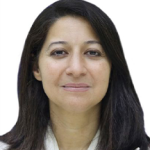
Authors
Sarah Mansour
Associate Professor of Economics, Faculty of Economics...

Research Fellows
Onur Altindag
Associate Professor of Economics (with tenure), Bentley...

Research Fellows
Ali Fakih
Professor and Chairperson, Department of Economics, Lebanese...
Papers
Is The Arab Spring A New Dividing Line? Experimental Evidence from Four Arab Countries
In the Arab World – as much as in other regions – historical events have... Read More
Unconditional Cash-based Assistance to the Poor: What Do At-scale Programs Achieve?
We study the effects of large, temporary income changes on a wide range of economic... Read More
The Gender Gap in Political Participation: Evidence from the MENA Region
This paper investigates gender differences in political participation across 10 MENA countries using data extracted... Read More
Videos
Parallel Session on: Education and Inequality
Date
08/06/2021
Location
Online Webinar
Time
From 4:00 pm To 5:30 pm
Speakers

Research Fellows
Rana Hendy
Assistant Professor of Economics and Director of...

Authors
Tanya Savrimootoo
Economist, World Bank’s Education Global Practice

Research Fellows
Paul Makdissi
Professor of Economics, University of Ottawa

Authors
Ozan Bakis
Associate Professor of Economics, Bahçeşehir University
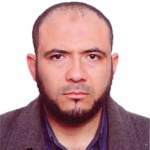
Research Fellows
Hatem Jemmali
Associate Professor, University of Manouba
Papers
The Impact of Twin Shocks on Learning Outcomes and Education Financing in Sudan
The global learning crisis has, rightfully, taken center stage over the past few years, with... Read More
Wage Inequality Dynamics in Turkey
This study aims to examine the evolution of wage inequality in Turkey between 2002 and... Read More
Inequality of Opportunities in Access to Basic Services among Children in Host Communities in Jordan and Lebanon: A Comparative Analysis
This paper examines the level of inequality of opportunity among children in host communities in... Read More
Videos
Parallel Session on: The Political Economy of Resource and Food Security in the MENA Region
Date
09/06/2021
Location
Online Webinar
Time
From 4:00 pm To 6:00 pm
Speakers

Research Fellows
Atif Kubursi
Professor, McMaster University

Authors
Dina Mandour
Assistant Professor, Economics Department at Faculty of...

Research Fellows
Ida Mirzaie
Senior Lecturer, Department of Economics, The Ohio...
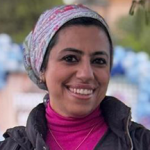
Research Fellows
Yasmine Abdelfattah
Assistant Professor of Statistics and Economics, University...
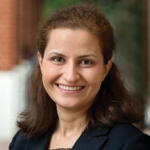
Authors
Sara Taghvatalab
Lecturer of Economics, Christopher Newport University in...

Authors
Ollie Ballinger
Oxford Department for International Development
Papers
COVID-19 and Food Security Challenges in the MENA Region
This paper aims at assessing the link between COVID-19 and FS status with special focus... Read More
Long-term Macroeconomic Effects of Climate Change: Evidence from the MENA Region
This paper focuses on the effect occurring between economic growth and climate change in the... Read More
Rural Electrification and Empowerment of Women in Rural Iran
We estimate the causal impact of electrification on fertility and the gender gap in education,... Read More
Assessing the Impact of Irrigation on Kurdish Separatism in Southeastern Turkey
This paper leverages a large-scale dam construction project in Southeastern Turkey to test the hypothesis... Read More
Videos
Parallel Session on: Revisiting Regional Integration Agreements and Trade Instruments in the ERF Region
Date
14/06/2021
Location
Online Webinar
Time
From 4:00 pm To 6:00 pm
Speakers

Research Fellows
Ahmed Ghoneim
Professor, Faculty of Economics and Political Sciences,...
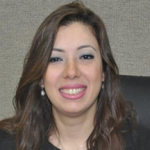
Authors
Asmaa Ezzat
Assistant Professor (Lecturer) at the Economics Department...

Research Fellows
Nergiz Dincer
Professor, Department of Economics and Vice Director,...

Authors
Makrem Ben Doudou
Assistant Professor, Department of Economics, University of...

Authors
Amal Medini
PhD Candidate in Economics, University of Tunis

Senior Associates
Bernard Hoekman
Professor and Director, Global Economics, Robert Schuman...

Authors
Ahmet Atil Asici
Associate Professor of Economics, Istanbul Technical University
Papers
On the Political Economy of Trade Agreements: A De Jure and De Facto Analysis of Institutions
This paper examines the effect of the quality of institutions on the membership in trade... Read More
Tunisia’s Trade with Sub-Saharan Africa: Large Room for Growth?
This paper examines Tunisia's trade pattern with Sub-Saharan African (SSA) countries. Specifically, it investigates what... Read More
Impact of COVID-19 on Tunisian Imports
The COVID-19 pandemic disrupted the trade flows between countries, revealing the vulnerability related to global... Read More
Potential Effects of the EU’s Carbon Border Adjustment Mechanism on the Turkish Economy
In December 2019, the EU announced the European Green Deal (EGD) whose ultimate target is... Read More
Videos
Parallel Session on: Banking and Exchange Rates
Date
15/06/2021
Location
Online Webinar
Time
From 4:00 pm To 5:30 pm
Speakers

Research Fellows
Mahmoud Haddad
Professor, The University of Tennessee at Martin,...
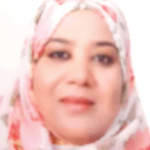
Research Fellows
Thouraya Hadj Amor
Assistant Professor, Shaqra University, KSA

Research Fellows
Mohamed El Arbi Chaffai
Professor of Econometrics, University of Sfax

Authors
Mustafa Disli
Assistant Professor at the College of Islamic...
Papers
How Economic, Political and Institutional factors Influence the Choice of Exchange Rate regimes? New Evidence from Selected Countries of the MENA Region
In this paper, we investigate how economic, political and institutional factors affect the choice of... Read More
Banking Market Power and Its Determinants: New Insights from MENA Countries
This paper evaluates the degree and determinants of banks’ market power in 13 MENA countries... Read More
Favoring the Small and the Plenty: Islamic Banking for MSMEs
While MSMEs form the backbone of many countries, most of them suffer from limited access... Read More
Videos
Parallel Session on: Aggregate Consumption Behavior
Date
16/06/2021
Location
Online Webinar
Time
From 4:00 pm To 5:30 pm
Speakers

Senior Associates
Raimundo Soto
Associate Professor of Economics, Pontificia Universidad Católica...

Research Fellows
Abdurrahman Aydemir
Full Professor of Economics, Faculty of Arts...
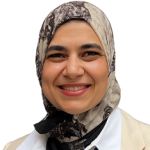
Research Associates
Sarah El Khishin
Associate Professor of Economics, British University in...
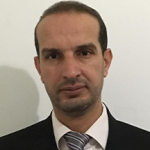
Research Fellows
Essahbi Essaadi
Assistant Professor, University of Manouba, Tunisia
Papers
Indirect Effects of a Large Scale Cash Transfer Program for Refugees
In this paper we estimate the indirect effects of a large-scale cash transfer program. The... Read More
Monetary-Fiscal Policy Interactions During Uncertainty Shocks: Evidence from Egypt
In this paper, we offer the above results for an empirical examination in Egypt; a... Read More
Hedging the Risks of MENA Stock Markets with Gold: Evidence from the Spectral Approach
In this paper, we contribute to the old debate on the dynamic correlation between gold... Read More
Videos
Parallel Session on: Wages, Inequality and Employment in Egypt
Date
21/06/2021
Location
Online Webinar
Time
From 4:00 pm To 5:30 pm
Speakers

Research Fellows
Massoud Karshenas
Emeritus Professor of Economics, Department of Economics,...

Authors
Björn Nilsson
Assistant Professor, University Paris-Saclay

Research Fellows
May Gadallah
Associate Professor, Departments of Statistics, Cairo University
Papers
Do Egyptian Labor Unions Have any Bargaining Power?
In this paper, we examine the role of unions in improving workers' outcomes in Egypt,... Read More
Wage inequality among Vocational Secondary Graduates in Formal and Informal Urban Areas of Egypt
The main objective of this paper is to contribute to the limited literature on the... Read More
Videos
Parallel Session on: Labor Force Participation, Unemployment and Incentives
Date
22/06/2021
Location
Online Webinar
Time
From 4:00 pm To 5:30 pm
Speakers

Research Fellows
Mahdi Majbouri
Full Professor, Babson College, Wellesley, MA

Authors
Ahmet Ozturk
Statistical, Economic, and Social Research and Training...

Authors
Mustafa Ulus
Associate Professor of Economics, Galatasaray University

Research Associates
Ali Souag
Assistant Professor, University of Mascara, Algeria
Papers
The Effect of Primary School Construction on Later Outcomes
Improving the later outcomes of children through increasing their school attainment is a key policy... Read More
Incentives and Exit Behavior: An Examination of the Unemployment Insurance System in Turkey
We use microdata obtained from the Turkish Employment Agency (ISKUR) to shed light on the... Read More
Impact of Fertility on Female Labor Supply in Algeria
This paper examines the impact of fertility on women's participation in the labor market in... Read More
Videos
Parallel Session on: Financial Markets, Crypto Currency Exchanges and Debt
Date
23/06/2021
Location
Online Webinar
Time
From 4:00 pm To 6:00 pm
Speakers
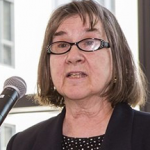
In Honorable Memory
Research Fellows
Mine Cinar
In Honorable Memory

Research Fellows
Ahmet Faruk Aysan
Associate Dean for Research, Hamad Bin Khalifa...

Authors
Sam Houdi
Civil Servant for the UK government

Research Fellows
Samir Ghazouani
Full Professor of Econometrics, Business School of...

Authors
Samar Abdelmageed
Assistant Lecturer, Business Administration Department, Faculty of...
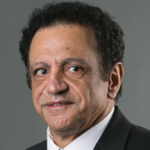
Research Fellows
Shawkat Hammoudeh
Associate Professor, Department of Economics, Drexel University
Papers
Survival of the Fittest: A Natural Experiment from Crypto Exchanges
This article explores the applicability of universal cryptocurrency exchange by analyzing crypto exchanges of Binance,... Read More
Oil, Monarchies, and Bank Concentration: Evidence from the 2008 Global Financial Crisis
Banking concentration, defined as the proportion of total assets owned by either the three or... Read More
Financial Integration, Inclusion, and Stability during Crises: Insights from the Middle East and North Africa (MENA) Region
The main objective of this paper is to analyze the interrelationships between financial integration, inclusion,... Read More
External Debt and Growth in Highly Leveraged MENA Countries When Interest Rates Are Falling
Due to the outbreak of the COVID-19 pandemic, external debt of developing countries and economies... Read More

